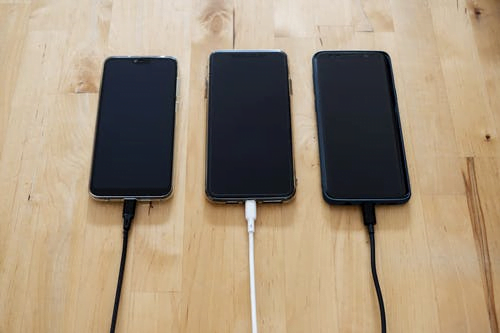Energy: ‘The strength and vitality required for sustained physical or mental activity.’
‘Power derived from the utilisation of physical or chemical resources.’
In other words – we need energy for all of our mental and physical processes and we need fuel to provide that energy. From breathing to thinking to working out to simply dragging ourselves out of bed when our alarm goes off, energy is the thing that allows us to do these tasks with ease or causes us to struggle and procrastinate. As the days get shorter here in the UK winter and the weather gets worse, many of us find our energy levels are low to none-existent. Read on for some key areas to consider if you’re wanting to boost your energy levels to get you through this time of year with more of a spring in your step.
FOOD/NUTRITION – Without fuel in the form of food, our bodies simply could not function. Whilst all food provides us with energy in one way or another, there are some key things to take into consideration when investigating whether diet could be contributing to a lack or abundance of energy.
Carbohydrates are the main macronutrient providing our bodies with energy. Slow releasing options such as wholegrain products provide a longer, steadier release of energy than simple sugars such as chocolate or sweets which can cause rapid blood sugar fluctuations. Of course, carbohydrates must be part of a healthy, balanced diet along with fats and proteins for optimal bodily functioning.

There are also some micronutrients known to be essential in energy release including the B vitamins. If you have any concerns over your diet affecting energy levels, it may be worth speaking to a qualified nutritional advisor who will discuss any potential deficiencies in your diet.
The timing and amount of food consumed is also important for optimal energy. You’re likely to lack energy to complete a workout if it’s several hours since you’ve eaten anything and at the other extreme, you may struggle to do a gym session straight after Christmas dinner! Whilst everyone is different and it’s important to find what suits you best, it’s generally recommended that we eat a full meal 2-4 hours before working out or a smaller meal/snack if it’s any closer than that. Find what works for you, but if you’re consistently getting to your workout running on empty, it may be time to turn the spotlight on your eating habits.
Caffeine is definitely worth a mention here too as the amount consumed and timing can be important. Whilst many of us love a cup of coffee, energy drink or dedicated pre-workout supplement to get us through our daily lives and workouts, we can become desensitised to it’s effects if we use it too often. This can lead to us needing more and more to get the desired ‘energy boost’ and relying too heavily on caffeine can lead to energy slumps when its effects wear off. By reducing your usage of caffeine you can gradually lower your tolerance to it once again. You may wish to swap some caffeinated drinks for ‘decaff’ versions, as often the difference in taste is barely noticeable. It’s advised to use caffeinated products only when an energy boost is desired and not merely out of habit.

SLEEP/REST – It sounds too simple to suggest that sleep could affect our energy levels right? We all know that a lack of sleep leads to tiredness, however many of us overestimate the amount of sleep we’re getting and underestimate how much we need. Many fitness trackers now include a sleep setting that can give us insights into not only how much sleep we get, but the quality of that sleep too. It’s recommended that healthy adults need around 7-9 hours of sleep a night and whilst like anything else there are huge individual differences between people, an adequate amount of sleep is essential to allow the body and mind to fully recharge and recover. Quality of sleep can be affected by things such as food and caffeine intake before bed, the use of screens too close to bedtime and external noise or light meaning that our sleep environment isn’t optimised.

As well as sleep, rest days and recovery practices such as stretching and massage are essential to help prevent our bodies and brains from experiencing excessive fatigue, burnout or being at increased risk of injury and illness. If you never wake up feeling refreshed and recharged, consider revising your sleep/rest routine and habits. There is an abundance of information, tips and even guided meditations on the internet that can help to support a healthier sleep and relaxation schedule if you’re keen to give it a go!
PSYCHOLOGICAL FACTORS – Whilst it’s clear that there’s a lot of physical factors that go into producing and using energy, psychological factors can also have a big effect. One of the key diagnostic criteria for depression is fatigue or low energy that persists for at least 2 weeks, and a key symptom of Seasonal Affective Disorder (sometimes called Winter Depression) is extremely low energy levels that can make even the most simple everyday tasks such as getting out of bed feel too difficult. Whilst low energy doesn’t always signify mental health issues, it’s true that stress and overthinking can put so much strain on our brains that we ‘burn out’ in a similar way to too much physical exertion.

Mental and physical fatigue can be so closely linked that they’re almost inseparable and so when considering how to optimise your energy levels it’s key to consider how you can allow your brain to recharge too. Whilst sleep and good nutrition (see above) can help, mental relaxation may also include things like catching up with loved ones, watching or reading something feelgood or practicing a hobby such as art, music or walking in nature. Long term stress management techniques can be built into your lifestyle to ensure that your brain gets chance to ‘switch off’ from analysing and processing the stresses of everyday life. This can help us to cope better with those everyday issues that pop up unexpectedly and require our precious time and energy.
Whilst energy levels vary naturally from person to person, day to day and in accordance with other factors such as weather and daylight, the above areas are key to consider if you’re looking to optimise yours. If you feel you’re living a healthy, balanced lifestyle and have taken care of all of the above factors and still feel consistently low in energy, it’s important to seek medical advice as it could be a symptom of an underlying health condition. However, if you’re simply in need of a pick-me-up, then brushing up on your lifestyle habits as detailed above could find you feeling fully recharged in no time! Let us know if there’s anything else you do to keep your energy levels topped up and we’ll be back soon with another blog ?
Beverley Meakin – Personal Trainer/ Exercise Referral Officer and Complementary Therapist.
Instagram – @mind_body_spirit_you

